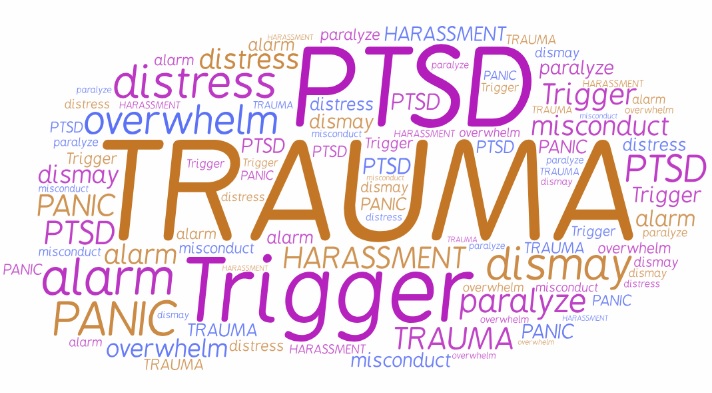Trauma and Triggers: How to Respond
by Barbra Silver, Executive Director
As millions of people watched the heart wrenching testimony of Christine Blasey Ford, trying to determine if she sounded “credible” about her own experience, many women (and l am sure quite a few men), relived their own traumas as they listened. Some of these people were likely your friends, your colleagues, your family members, your neighbors and perhaps yourself. What is going on? And what, if anything, can we do about it?
“The body remembers, the bones remember, the joints remember, even the little finger remembers. Memory is lodged in pictures and feelings in the cells themselves. Like a sponge filled with water, anywhere the flesh is pressed, wrung, even touched lightly, a memory may flow out in a stream.” (Clarissa Pinkola Estes)
Unprocessed trauma memories are stored in the right brain as images, sounds and feelings. They send the alarm to “do something” when activated because it feels like the traumatic event is happening now. Sometimes the urge puts us in survival mode of “fight, flight or freeze.” Feelings of anger, fear, confusion, shame and helplessness often arise. When you have a trauma history, getting “triggered” means that some unfinished piece of history gets activated in your current moment. You might feel upset or go numb, feel spaced out, or even feel like the past is the present and the trauma is happening right now. (D. Fay, MSW, 2007)
As painful as these experiences are, there are some tangible things that you can do to either help yourself or those around you. Some of the most basic come from the practice of mindfulness. Mindfulness is “the awareness that emerges through paying attention on purpose in the present moment. It is intentional, experiential and non-judgmental. It is paying attention to things as they actually are instead of how we might want them to be.” (William, Teasdale, Segal, Kabat-Zinn. 2007) It involves slowing down and being curious. Building this awareness can be through connecting to your senses (what do you hear, see, smell, feel right now?); connecting to the people you feel most safe with, or to a higher power; connecting to concrete mental events, soothing thoughts or images; and/or connecting to the sensations in your body. The goal is to regain your ability to tolerate feelings and think clearly again. It might take time, and that is ok, but it will happen.
As our society continues to confront the reality of sexual assaults and reckons with its consequences, more and more people will feel the necessity to share their most vulnerable experiences. Either because they want to or because they have no choice since their bodies will begin speaking for them. If this person is you, please know there is help available. You can call hotlines (National Sexual Assault Hotline 1-800-656-4673, or if you are a parent in Alameda County and are seeking support for yourself or your child, you can call Family Paths’ 24-Hour Parent Support & Resource Hotline at 1-800-829-3777). Know that you are not alone and help is available. We, as a nation are in this together – our families, friends and communities need us all to open our eyes to acknowledge the hard truths, listen with compassion, and be kind with ourselves and each other. If you can do that for one other person today, you will have made a difference towards healing.
~Barbra Silver, LMFT, Executive Director, Family Paths, Inc.
